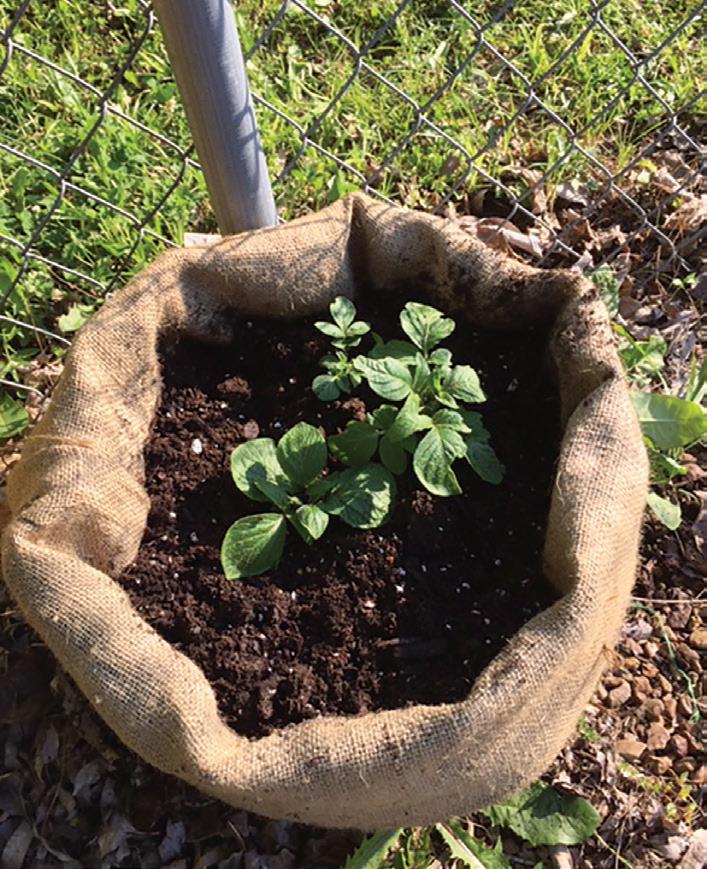
2 minute read
The Great Outdoors, Pt. 2: Planting a garden
BY HANNAH HERNER
It’s not a good time for many activities right now, but May has always been a good time for planting a garden.
For the second part in a series on getting outside during the pandemic, we asked a Davidson County master gardener for tips on growing a garden at home. Joan Clayton-Davis is a container garden enthusiast, and says a porch, balcony or even just a sunny window is enough to grow a garden.
Throughout the year, Clayton-Davis and her husband — also a master gardener — are usually hosting events and meeting with community groups to teach agricultural skills. Master gardeners run the free seed exchange at the Nashville Public Libraries. They also tend to a community garden at Tennessee State University College of Agriculture and the Ellington Agricultural Center, among others.
“Oh we are totally addicted to being gardeners!,” she says. “We love sharing and teaching others. Just through the master gardeners speakers’ bureau alone, we usually reach six or seven hundred people a year. As master gardeners, our whole focus is to educate people on science-based approaches to gardening and horticulture. Everything we present is researched and proven to be effective.”
The March 3 tornado destroyed the TSU garden, and COVID-19 is keeping her in her own yard, but that doesn’t stop Clayton-Davis from planting seeds.
What are container gardens?
Clayton-Davis says to make a container garden, you just have to wash your container of choice thoroughly with dish soap or diluted bleach first, and make sure there’s a hole in the bottom for drainage.
“You can grow in almost any container. In my breakfast room I have a bay window, and in the window I have a basil plant that I use for cooking, and it is in a plastic fish bowl,” she laughs. “Containers are just a fun thing to do.”
Examples of containers to use include a milk carton, a basket, a bucket, water bottle, a kiddie pool, even potatoes in a burlap bag. She suggests putting pebbles in the bottom and using potting soil to pot the plants. things that you’ll actually use. She likes to grow and dry peppermint leaves for tea, and also has a larger “salsa garden” with tomatoes, peppers and onions necessary for making homemade salsa.
Some other vegetables that work well in containers include cucumbers, sweet peppers, hot peppers, radishes, squash, tomatoes, eggplant, spinach, lettuce and onions.
Overall, it’s a good idea to review what plants are native to Middle Tennessee when choosing what to plant as well, she says.
“They’re going to do better,” says Clayton-Davis. “If you want to put something in your yard, the native plants have weathered the elements in this area for centuries.”
Go forth and garden
Clayton-Davis’ best advice for novice gardeners is to keep it simple — pick one or two things to try. The main thing you need to make a garden is your hands, she insists.
“Always treat your plants like they’re your children. Just pamper them constantly,” Clayton Davis says. “Check on them so you can take care of any pests early.”
For more information visit mgofdc.org. Clayton-Davis also recommends resources from the University of Tennessee Institute of Agriculture, and the Tennessee State University College of Agriculture.






